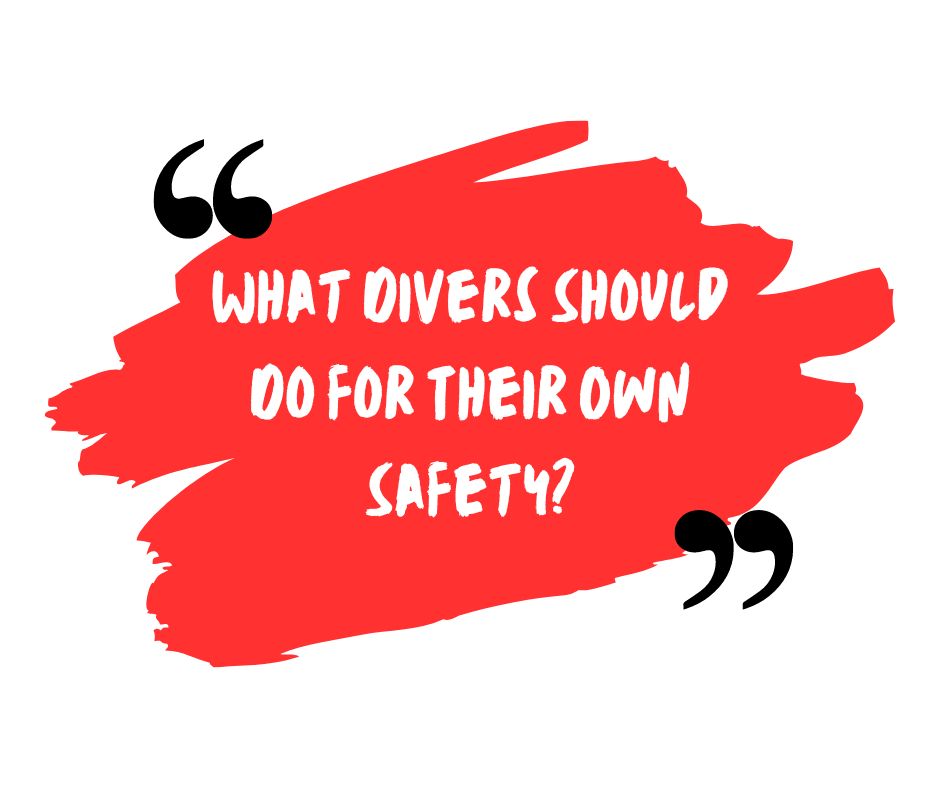Scuba diving offers a mesmerizing underwater world to explore, but it also comes with its own set of risks. To fully enjoy this exhilarating adventure, divers must prioritize safety above all else. In this article, we’ll delve into what divers should do to ensure their own safety while exploring the depths.
8 Essential Tips that Divers should Do for Their Own Safety
1. Get Proper Training
The first and most crucial step in ensuring your safety as a diver is to receive proper training. Enroll in a reputable scuba diving certification course from organizations like PADI, NAUI, or SSI. These courses cover essential topics such as dive theory, equipment handling, and safety procedures.
2. Check and Maintain Your Equipment
Your dive equipment is your lifeline underwater. Regularly inspect and maintain your gear to ensure it’s in optimal working condition. This includes your regulator, tank, BCD, mask, and fins. Any signs of wear and tear should be addressed promptly.
3. Plan Your Dive
Before every dive, develop a detailed dive plan. This plan should include your intended depth, dive time, ascent rate, and emergency procedures. Discuss the plan with your dive buddy, and make sure you both understand and agree on it.
4. Dive with a Buddy
Diving with a buddy is a fundamental safety rule. A buddy can provide assistance in case of emergencies, share air if needed, and help with equipment issues. In the event of a problem, having a buddy can be a lifesaver.
5. Monitor Your Air Supply
Keep a close eye on your air supply throughout the dive. Never push the limits of your tank’s air supply, and always begin your ascent with enough air for a safe safety stop. Ascending with 50-70 bar or 500-700 psi is a common guideline.
6. Watch Your Dive Depth
Respect your depth limits based on your certification level. Going too deep without the necessary training can lead to issues like nitrogen narcosis and decompression sickness. Always stay within your training and experience level.
7. Stay Calm and Relaxed
Panicking underwater can lead to dangerous situations. If you encounter a problem, remain calm, and use your training to address it. Proper buoyancy control and controlled breathing are keys to staying relaxed underwater.
8. Be Aware of Your Surroundings
Maintain awareness of your surroundings, including potential hazards like strong currents, marine life, and other divers. Avoid touching or disturbing marine life, as it can be harmful to both you and the environment.


FAQ: Answers to Common Questions
Q1: Can I dive alone if I’m an experienced diver?
A1: Diving with a buddy is recommended for safety. While experienced divers may have more confidence, having a buddy is a crucial safety measure in case of emergencies.
Q2: What should I do if I run low on air during a dive?
A2: Signal your buddy, and both divers should begin a controlled ascent to the surface. Make safety stops as necessary while ascending.
Q3: Is it essential to have dive insurance?
A3: Dive insurance is not mandatory but highly recommended. It can provide financial coverage for dive-related emergencies and medical treatment.
Conclusion
Scuba diving is a thrilling and rewarding activity, but it comes with responsibilities. Divers must prioritize their safety by obtaining proper training, maintaining equipment, planning dives, diving with a buddy, monitoring air supply and depth, staying calm, and being aware of their surroundings. By following these safety guidelines, divers can enjoy the wonders of the underwater world while minimizing risks and ensuring a secure and enjoyable experience.
